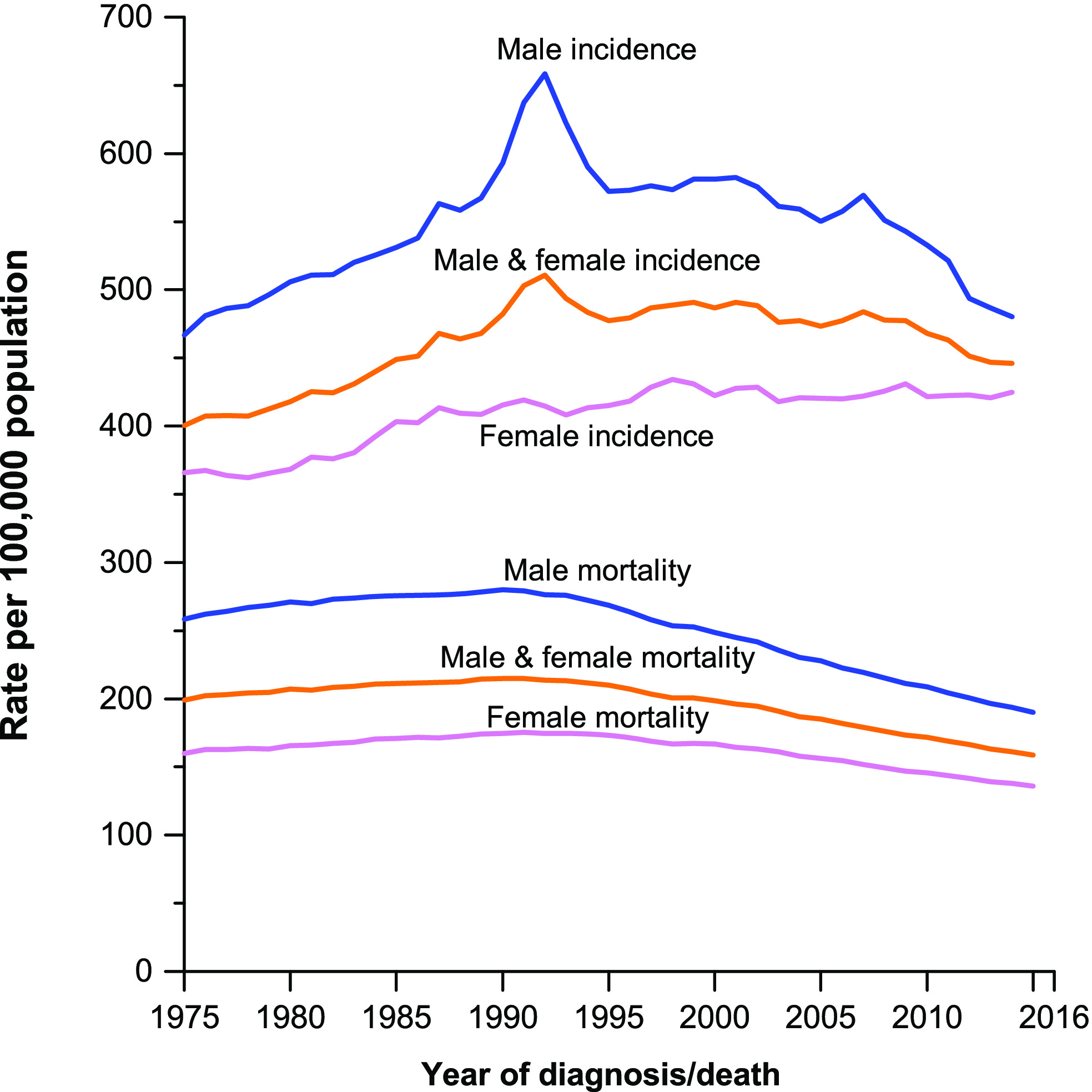On Tuesday, the American Cancer Society reported that cancer rates steadily declined between 1991 and 2016. Steady reductions in smoking and advances in early detection and treatment play a significant role in this achievement. The figure above illustrates the trends in cancer incidence and mortality rates in the United States over this time period. What can we do to ensure this trend continues? Our reports provide guidance to further cancer research and improve patient diagnosis and treatment. All are free to download.
Communities in Action: Pathways to Health Equity
In the United States, some populations suffer from far greater disparities in health than others. Those disparities are caused not only by fundamental differences in health status across segments of the population, but also because of inequities …
Improving Diagnosis in Health Care
Getting the right diagnosis is a key aspect of health care – it provides an explanation of a patient’s health problem and informs subsequent health care decisions. The diagnostic process is a complex, collaborative activity that involves clinical …
Ovarian Cancers: Evolving Paradigms in Research and Care
In an era of promising advances in cancer research, there are considerable and even alarming gaps in the fundamental knowledge and understanding of ovarian cancer. Researchers now know that ovarian cancer is not a single disease–several distinct …
Though cancer was once considered to be a problem primarily in wealthy nations, low- and middle-income countries now bear a majority share of the global cancer burden, and cancer often surpasses the burden of infectious diseases in these …
Long-Term Survivorship Care After Cancer Treatment: Proceedings of a Workshop
The 2006 Institute of Medicine (IOM) consensus study report From Cancer Patient to Cancer Survivor: Lost in Transition made recommendations to improve the quality of care that cancer survivors receive, in recognition that cancer survivors …
The National Cancer Policy Forum of the National Academies of Sciences, Engineering, and Medicine held a public workshop, Incorporating Weight Management and Physical Activity Throughout the Cancer Care Continuum, on February 13 and 14, 2017, in …
Rapid advances in cancer research, the development of new and more sophisticated approaches to diagnostic testing, and the growth in targeted cancer therapies are transforming the landscape of cancer diagnosis and care. These innovations have …
Delivering High-Quality Cancer Care: Charting a New Course for a System in Crisis
In the United States, approximately 14 million people have had cancer and more than 1.6 million new cases are diagnosed each year. However, more than a decade after the Institute of Medicine (IOM) first studied the quality of cancer care, the …








